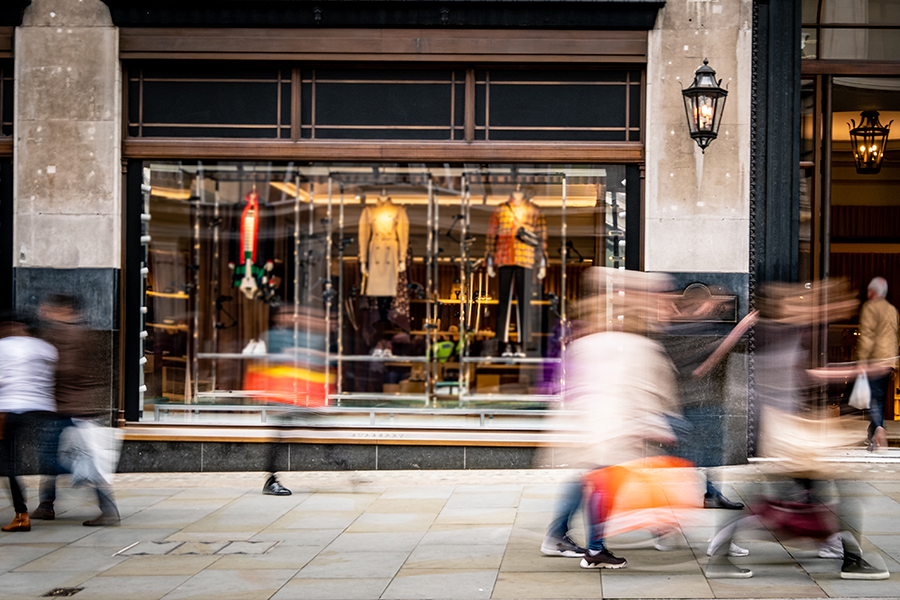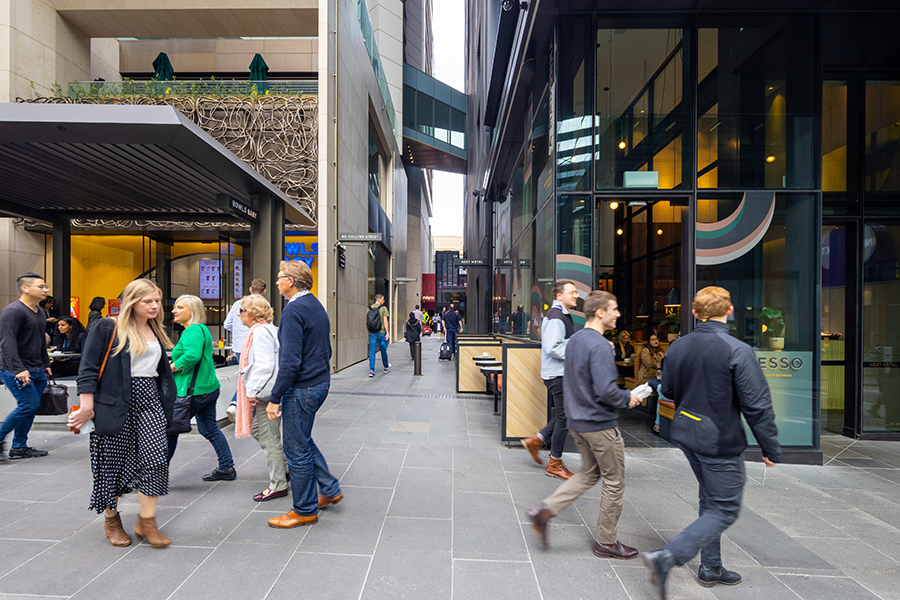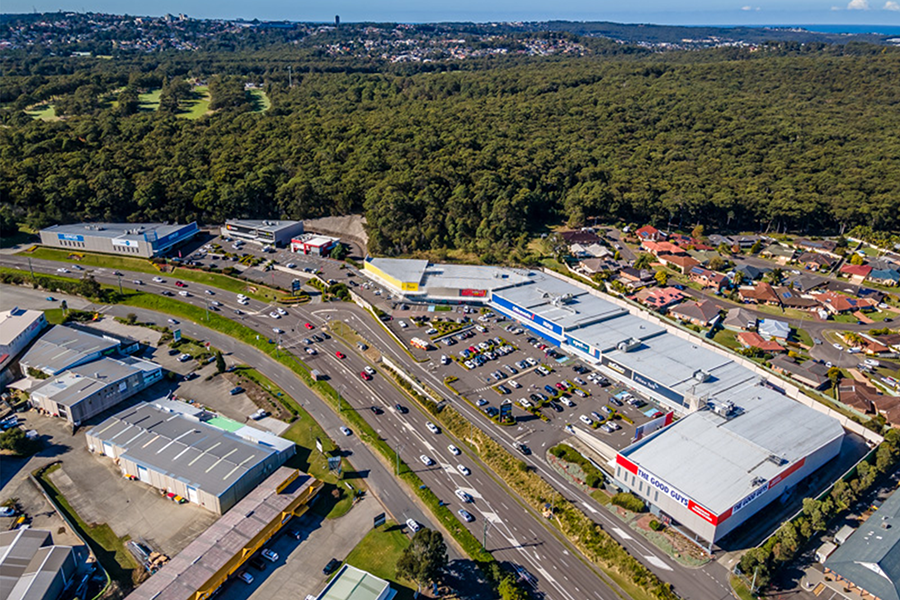The National Retail Association (NRA) and Australian Retail Association (ARA) have both come forward to praise the Federal Budget announced by Treasurer Josh Frydenberg. Both organisations welcomed the focus on addressing skills shortages and tax cuts for business and low and middle income earners in the 2021-22 Federal Budget, but called for further support for businesses that remain distressed by the uneven recovery.
“Australia’s economy is in an enviable position – unemployment is down and business confidence is at record highs – but we can’t become complacent,” said ARA CEO Paul Zahra. “We need to consolidate our head start in the global recovery.
“The investment in skills is welcome, including a $1 billion extension to the JobTrainer program. But for these measures to translate into job outcomes, we need more flexibility for retailers to access the scheme. As Australia’s largest private sector employer – with one in ten Australians working in the industry – retail plays an important role in the employment and skills rebound.
“The tax cuts for low and middle income earners will help ensure there’s more money in people’s pockets to support retail spending and create more jobs,” said Zahra. “We welcome the further extension of measures for business to write off the full value of any eligible asset they purchase. This will allow businesses to make the investments they need in equipment so they can continue to grow and thrive in the post-COVID world.”
NRA CEO Dominique Lamb agreed the measures aimed at boosting customer spending and encouraging business investment are welcome additions.
“Extending tax cuts for low and middle-income earners will mean that everyday Australians will now have more disposable income to spend at the shops, providing an adrenaline boost to retailers’ bottom lines,” said Lamb, adding that an additional 12-month extension to the temporary full expensing measures until 30 June 2023 and a one-year extension of the temporary loss carry back will allow businesses to invest in their futures.
“The NRA has been advocating for the continuation and expansion of the instant asset write-off since before COVID-19 came along. Local cafés, family-owned restaurants and small clothing shops, to name just a few, will now be able to make investments in their business that would otherwise be unaffordable.”

Though on the surface the Australian high street seems to be back to pre-pandemic bustle, many businesses still haven’t recovered from the impact of the lockdowns
Untangling regulations
The Federal Government will spend $134 million over four years on its deregulation agenda, including investing in regulatory technology (regtech) to support smaller employers to comply with modern awards, provide data on pay and conditions, and help with accuracy in payroll software.
“Most people outside the sector think we’re exaggerating when we say that, since 2013, retailers have had to deal with nearly 14,000 different rates of pay, depending on variables such as whether the employee is casual or permanent, their age, their classification and the times at which the work is performed. This number easily doubles if you consider shift workers, baking production employees, apprentices and those working under the supported wage system,” said Lamb.
“The NRA applauds the Federal Government for recognising the complexity of the system, and taking steps to improve compliance.”
The NRA expects to see an increase in distress for businesses exposed to international travel and events due to prolonged border closures, despite short-term stimulus measures. The $1.2 million support package for the aviation industries is welcome but will not be enough for many struggling retailers, it stated, particularly those suffering from decreased foot traffic in airports and CBDs.
“The retail sector as a whole is tracking well, but there are two cohorts we remain deeply concerned about,” agreed Zahra. “Travel retailers, like duty free shops and stores located in airports, have been severely impacted by international border closures, along with retailers in CBD locations, especially small businesses in both Melbourne and Sydney, where foot traffic is still catastrophically low.
“These are businesses that continue to suffer through no fault of their own, and unlike other industries like tourism and aviation, they haven’t been thrown a government lifeline beyond JobKeeper. It’s these businesses that are at risk of being left behind in Australia’s economic recovery,” he said.
“We need to work on getting people back into these areas. Small and family owned businesses are the cornerstone of the hospitality and tourism sector, and it’s crucial they receive support to ensure they’re still here, ready to do business, when borders reopen,” Lamb said.
Digital economy boost
“The pandemic has created a powerful shift in the way people live and work and how people purchase the goods and services they need,” said Zahra. “When lockdowns and restrictions were introduced just over a year ago, some retail businesses had to scramble to boost their online and digital offerings, so they could continue to operate while people were confined to their homes.
“The migration to online is a permanent one, with more and more consumers purchasing the things they need with a few taps of their fingers and embracing new methods of contactless shopping. It’s part of an acceleration of trends we’ve seen over the past 12 months, and that will continue to evolve in the years and decades to come,” he said. “It’s important that businesses, particularly small business, have the skills and knowledge they need to keep up with the rapid rate of innovation and new and emerging consumer trends.
“The Federal Government’s investment as part of a Digital Economy Strategy is an important step towards boosting our productivity and securing our country’s future prosperity. The investment will also support jobs growth as future skills in retail become more technology and science-based.
“Consumers are now expecting retailers to ‘meet them where they are’, through consistent, seamless omni-channel interactions – and that involves businesses having a clear and dedicated focus on digital,” said Zahra. “We welcome the Federal Government’s commitment to enhancing the digital capabilities of Australia’s businesses.”
Lamb agreed, stating: “People spent 2020 predominantly at home, shopping from the comfort of their living rooms and couches. While we’ve certainly seen spending in store return to normal in many parts of the country, it’s now the time to invest in the digital economy.”

After the significant impact the pandemic has had on the retail industry over the past year, the budget will bring relief to businesses and assist them in recovery
Women in focus
Lamb noted that women were a key focus in the Federal Budget and that the Australian retail industry continues to be a key employer of women, providing a variety of opportunities in both sales and non-sales roles.
“Particularly coupled with incentives for entrepreneurs, investment in digital skills is a great move for retail,” she explained. “Many entrepreneurs – a significant percentage of these being women – start their businesses with their laptop. Investing in digital skills and infrastructure will give more retailers the opportunity to start – and boost – their business.”
“Certainly, the access to childcare subsidies will give women the freedom to create their own businesses and participate economically,” she said. “Removing the $450 per month threshold under which employers are exempt from paying employees, predominantly women, will also provide certainty for these women as they look towards retirement. It’s of paramount importance that government and retailers continue to work towards equal opportunity in leadership opportunities.”
“Women are the backbone of the retail workforce – they represent 68% of sales assistants and 75% of checkout operators,” added Zahra. “There is a clear focus on women as part of this year’s Budget – and that’s long overdue – with additional funding for women’s health and domestic violence programs.”
“The $1.7 billion child care package is also significant. This will provide more choice for working mothers and also puts more cash into the family budget each week, which are good outcomes for Australian families, the retail sector and the broader economy.”





















